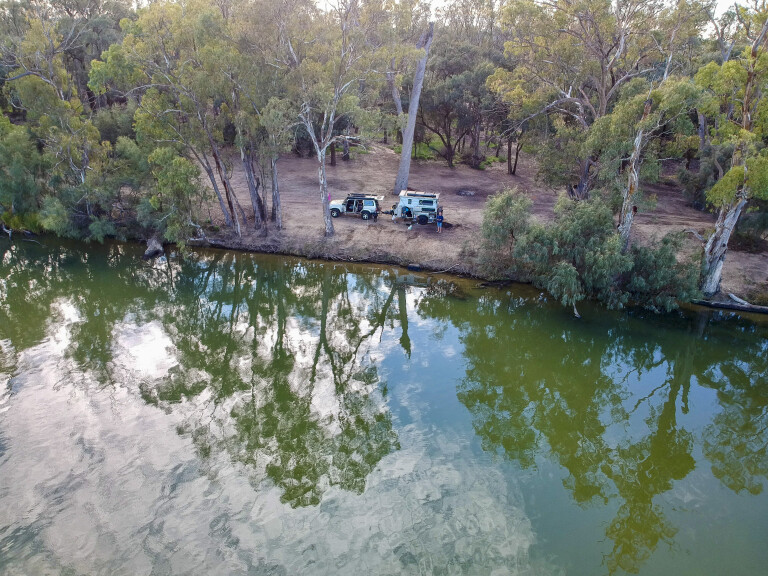
It was while we were around the Wentworth-NSW area on the Murray River, when I heard about the Rufus River drive. Wentworth itself is chockers with history, dating back to 1830 when explorer Charles Sturt and his crew rowed down the Murray River and reached the junction of the Darling River, where he wrote in his log, “a new and beautiful stream apparently coming from the north.”
Sturt was the first white man to encounter the local Barkindji people along the river, and they did not welcome the new arrivals. It was just six years later when explorer Thomas Mitchell travelled down the Darling to the junction of the two rivers. This opened the door to an influx of European overlanders who moved sheep and cattle along the rivers to find better pastoral lands.
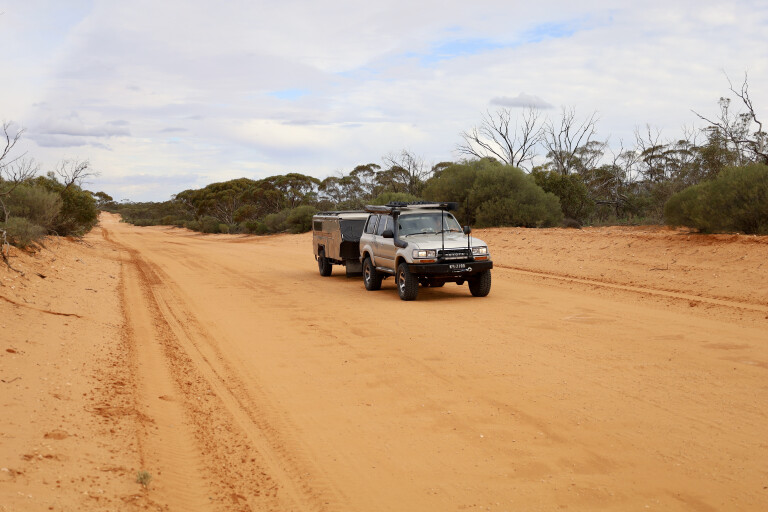
Houses were built from early 1851, but Wentworth wasn’t proclaimed until 1859. Over the next few years it boomed from the river traffic, with police quarters built and a solid town emerging – it’s reported that in 1895, 495 vessels passed through the customs office at Wentworth.
Today, Wentworth has a strong local population and plenty of tourists visiting year-round. There’s plenty to see and do around town including the replica of the 1879 wharf, which was claimed to be the busiest port in NSW in its heyday (after Sydney and Newcastle); the heritage-listed buildings lining the streets; and Junction Park, to see where the Darling and Murray rivers meet. Explore the history at Fatherly Park and its old implements, the Paddle Steamer called Ruby, and McClymont House which was Wentworth’s first courthouse built in 1863. There’s also Sturt’s Tree, and the monument to the Ferguson ‘Fergie’ tractor, where back in 1956 nearly 40 Fergies worked day and night building a levee bank around town when it was threatened by the worst floods at the time.
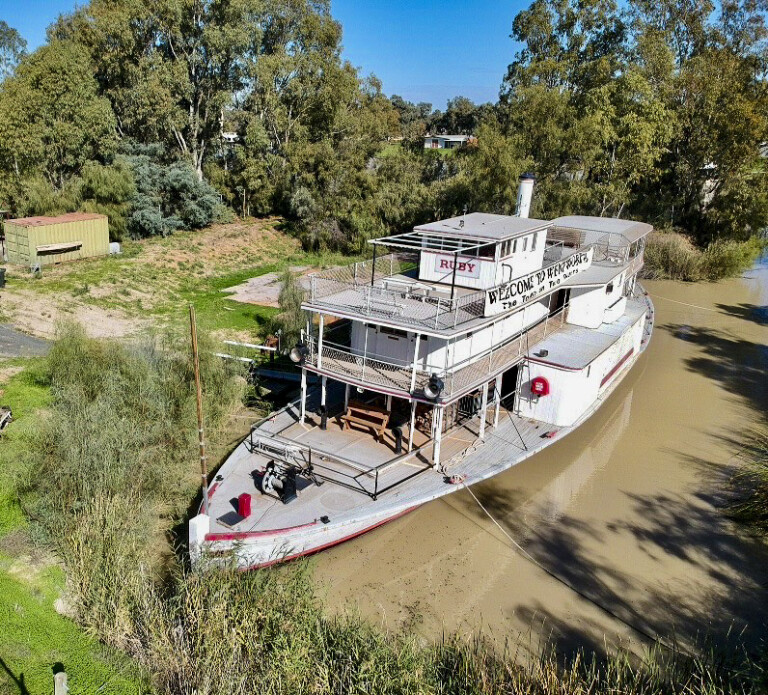
Along the Murray are a series of locks, and in Wentworth the historic lock number 10 and weir is always a good visit. It was built to maintain and control water levels, and there’s a fishway to allow fish to move freely past the weir.
Old Wentworth Gaol
A must-do while in town is to spend time at the Old Wentworth Gaol and Pioneer Museum. The gaol dates back to 1879 and is unique with its 45cm-thick walls, lookout towers, shackles set in a boulder in the full sun, stretching rack, whipping stocks, and much more.
The gaol was built for very serious offenders at the time, with only 10 male and two female cells. More than one million bricks were used in its construction. Nearly 3000 items are on display across the road at the museum, with items from old river-boat days, extinct megafauna fossil remnants, and folk and pioneer memorabilia.
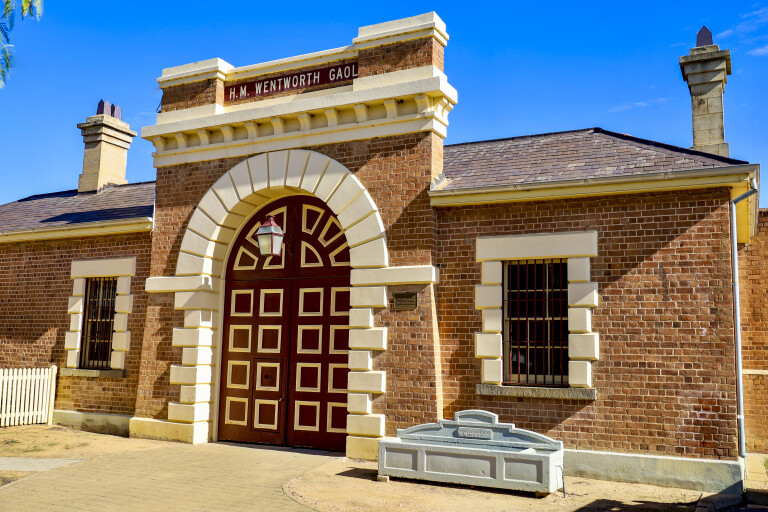
We started the Rufus River Run from the northern side of Wentworth, along Renmark Road. It was only 4km out of town where we found the turn-off to the stunning 40,000-year-old Perry Sandhills. These remarkable dunes and its surrounding landscape have uncovered an array of bones from many megafauna animals including kangaroos, emus, wombats and giant goannas. There’s been evidence of early Aboriginal occupation both here and at the nearby lakes. Today, both kids and adults use the dunes as big sand slides, going down them on anything flat and smooth.
Heading back along Renmark Rd for another 20km, Rufus River Rd swings off to the left and straight on to dirt. We found the road in pretty good nick, driving the entire 170km through to Renmark in South Australia. Along the way are several free camps beside the river, as well as information regarding the Australian rangelands as you pass through Moorna Station. The rangelands are defined as a mix of drylands and wetlands, where businesses harvest either plant or animal, mine resources or provide recreational areas. This contributes more than $150 billion annually to the Australian economy and covers nearly 80 per cent of our mainland.
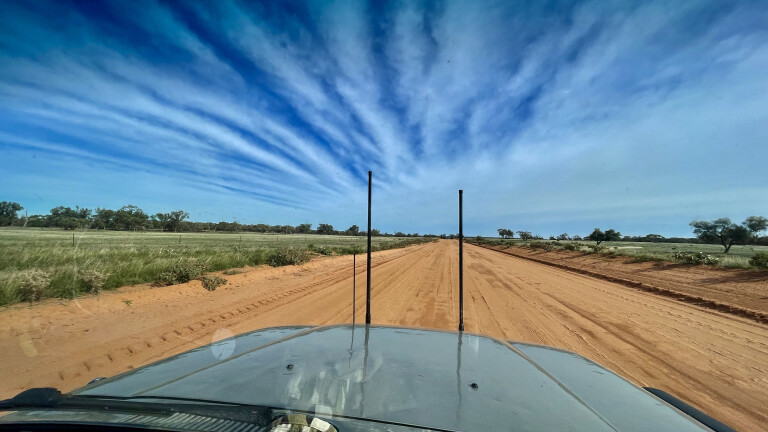
TAR-RU
Continuing on through station roads, we closely followed tributaries of the Murray until Lake Victoria. Traditionally known as Tar-Ru, the lake has been home to the local Maraura people for more than 45,000 years.
Around 10,000 years ago the flow from the Murray slowed, leaving a smaller lake. When explorer Sturt (in 1830) passed through here, it disrupted the life of the Maraura people, with herds of sheep and cattle subsequently being driven through the area. In consequence, exotic diseases spread through the region, while in 1841 a disastrous conflict occurred when nearly 40 locals were massacred – they were no match for guns, and it was known as the Rufus River Massacre.
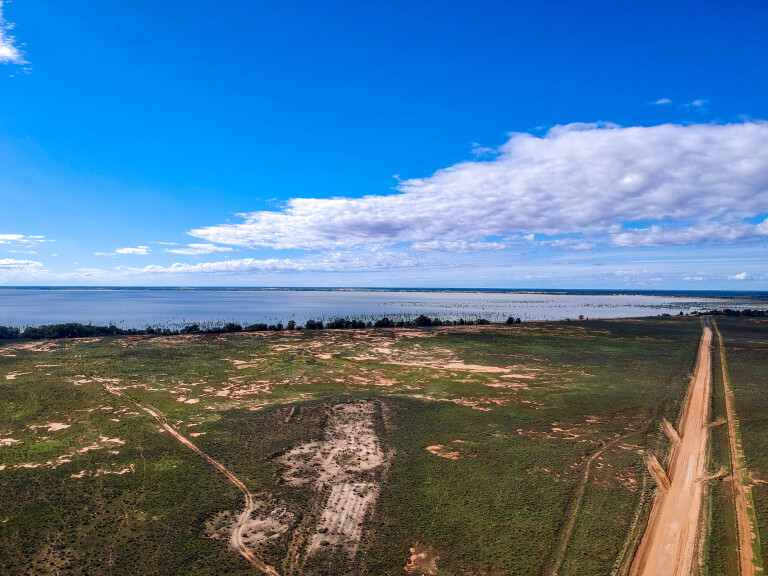
In 1919, the natural lake was doubled in size to hold a massive 680 gigalitres, with nearly 55km of new levee banks constructed.
Following this came transformations in the landscape, with rivers being rerouted, existing shorelines dying off and changes in erosion and sediment patterns. Push the clock forward to 1994 when the lake was lowered for maintenance, and delicate and significant Aboriginal human remains and artefacts were found. Areas uncovered also featured campsites, stone tools, shell middens, cooking hearths and a large burial ground.
In the following years, elders and archaeologists surveyed and put protection orders in place over these significant areas. Today the lake is a holding source for the river downstream, where the Murray-Darling Basin Authority controls the discharge of water to the Murray River via the Rufus River – this was named by Charles Sturt in honour of his red-haired friend George McLeahy.
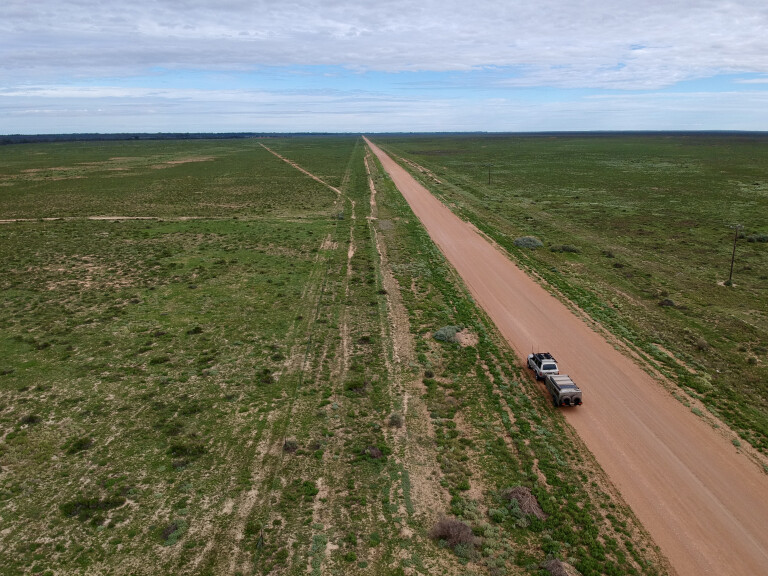
Today the lake has an impressive viewing point and info boards explaining in-depth the prehistoric, Aboriginal and other significant history. There’s also a free camp beside the lake’s lookout, with toilets, fireplaces and free showers. The Rufus River Rd continues for another 30km before it rejoins Renmark Rd north of the lake, where it leads in to SA and passes the official border marker.
There are bins at the border to throw out fresh fruit and veggies that are illegal to take in to SA, as they may be carrying fruit fly which causes damage to the valuable crops in the area. Funnily enough, once you cross the border grid, the road name changes to the Wentworth-Renmark Road. We were surprised to see such wide, sandy roads throughout the trip.
Renmark
It's another 55km to the outskirts of Renmark, which itself has a stack of history and more free camping along the banks of the Murray. Renmark dates back to 1830, when Charles Sturt rowed down the Murray River and the area inhabited by the local Naralte people. The name Renmark derives from the local language for ‘red mud’, presumably from the rich, red sands that surround the area and the red cliffs along the Murray.
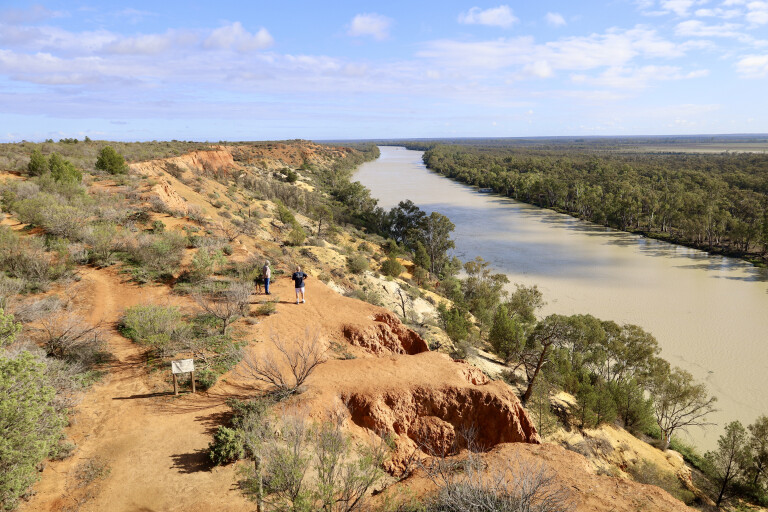
Today the town is known as a major service town for the region and as the oldest irrigation settlement in Australia. Renmark is surrounded by a host of horticultural crops including grapes, citrus, olives and seasonal veggies. Among the displays around town is the Argo Barge, which is recognised as the largest barge to grace the waters of the Murray, carrying at times up to 200 tonnes of freight. It worked on the river until 1942 before being put to work to help pump water for new irrigation channels. Then there’s the PS Industry that was built in 1911 and spent its working life removing snags from the river, with the odd rescue when other steamers sank.
The beautiful Renmark Hotel was once known for having the finest accommodation in the state and serving the finest meals. When established, the hotel became famous for two reasons: putting a reported 13 sly grog shops out of business in the ‘supposed’ dry town, and becoming the first community hotel in the British Empire.
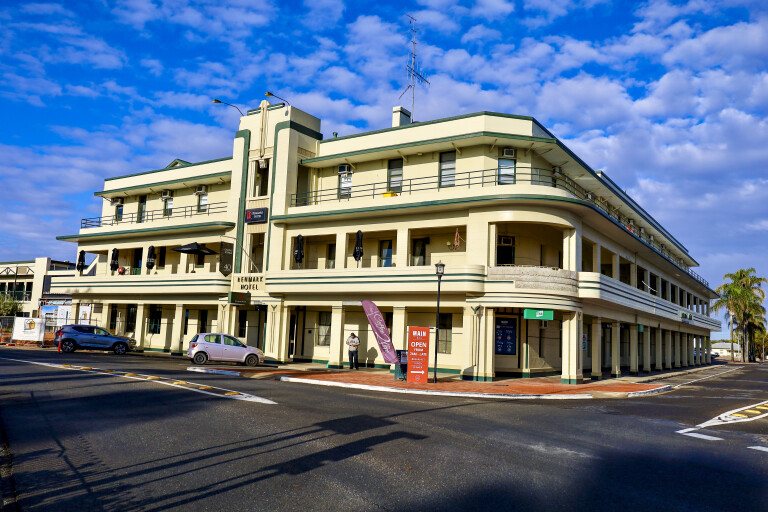
The Rufus River drive from Wentworth to Renmark is a great route, and there’s plenty of river pioneering and local history to delve into along the way.

COMMENTS